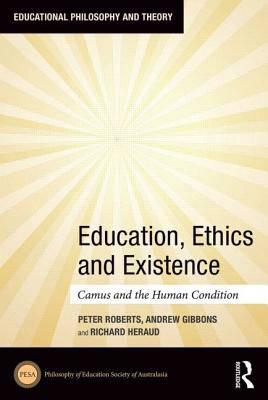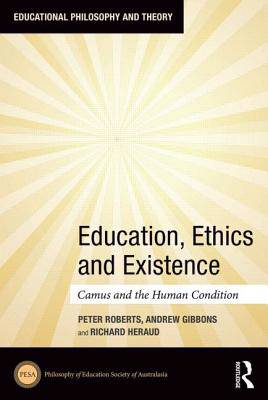
- Afhalen na 1 uur in een winkel met voorraad
- Gratis thuislevering in België vanaf € 30
- Ruim aanbod met 7 miljoen producten
- Afhalen na 1 uur in een winkel met voorraad
- Gratis thuislevering in België vanaf € 30
- Ruim aanbod met 7 miljoen producten
Education, Ethics and Existence
Camus and the Human Condition
Peter Roberts, Andrew Gibbons, Richard HeraudOmschrijving
Best known today for his novels, plays and short stories, but also an accomplished essayist, editor and journalist, Albert Camus was one of the most influential literary figures of the 20th century. He has gained widespread recognition for works such as The Stranger, Caligula, The Plague and Exile and the Kingdom. In 1957 Camus was awarded the Nobel Prize for Literature. In 1960 he was killed in a car accident, aged just 46. Since Camus' untimely death, his work has been engaged by scholars in literature, politics, philosophy and many other fields.
This volume is one of the first book-length studies of Camus with a specifically educational focus. Camus' writings raise and address ethical and political questions that resonate strongly with current concerns and debates in educational theory, and the difficulties and dilemmas faced by his characters mirror those encountered by many teachers in school classrooms. This book will appeal to all who wish to consider the connections between education, ethics and the problem of human existence.
This book was originally published as a special issue of Educational Philosophy & Theory.
Specificaties
Betrokkenen
- Auteur(s):
- Uitgeverij:
Inhoud
- Aantal bladzijden:
- 138
- Taal:
- Engels
- Reeks:
Eigenschappen
- Productcode (EAN):
- 9781138852891
- Verschijningsdatum:
- 27/02/2015
- Uitvoering:
- Hardcover
- Formaat:
- Genaaid
- Afmetingen:
- 178 mm x 249 mm
- Gewicht:
- 430 g

Alleen bij Standaard Boekhandel
Beoordelingen
We publiceren alleen reviews die voldoen aan de voorwaarden voor reviews. Bekijk onze voorwaarden voor reviews.











